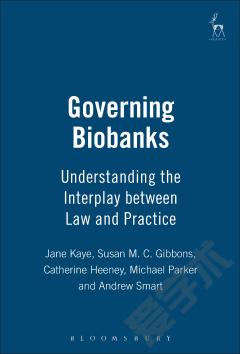Governing Biobanks —— Understanding the Interplay between Law and Practice
----- 生物库管理:解读法律与实践的相互作用
Biobanks are proliferating rapidly worldwide because they are powerful tools and organisational structures for undertaking medical research. By linking samples to data on the health of individuals, it is anticipated that biobanks will be used to explore the relationship between genes, environment and lifestyle for many diseases, as well as the potential of individually-tailored drug treatments based on genetic predisposition. However, they also raise considerable challenges for existing legal frameworks and research governance structures. This book critically examines the current governance structures in place for biobanks in England and Wales. It shows that the technologies, techniques and practices involved in biobanking do not always conform neatly to existing legal principles and frameworks that apply to other areas of medical research. Using a socio-legal approach, including interview data gathered from the scientific community, this book provides unique insights and makes recommendations about appropriate governance mechanisms for biobanking in the future. It also explores the issues around the secondary use of information, such as consent and how to protect privacy, when biobanks are accessed by a number of different third parties. These issues have relevance both within England and Wales and to a wide international audience, as well as for other areas where large datasets are used.
{{comment.content}}








 京公网安备 11010802027623号
京公网安备 11010802027623号